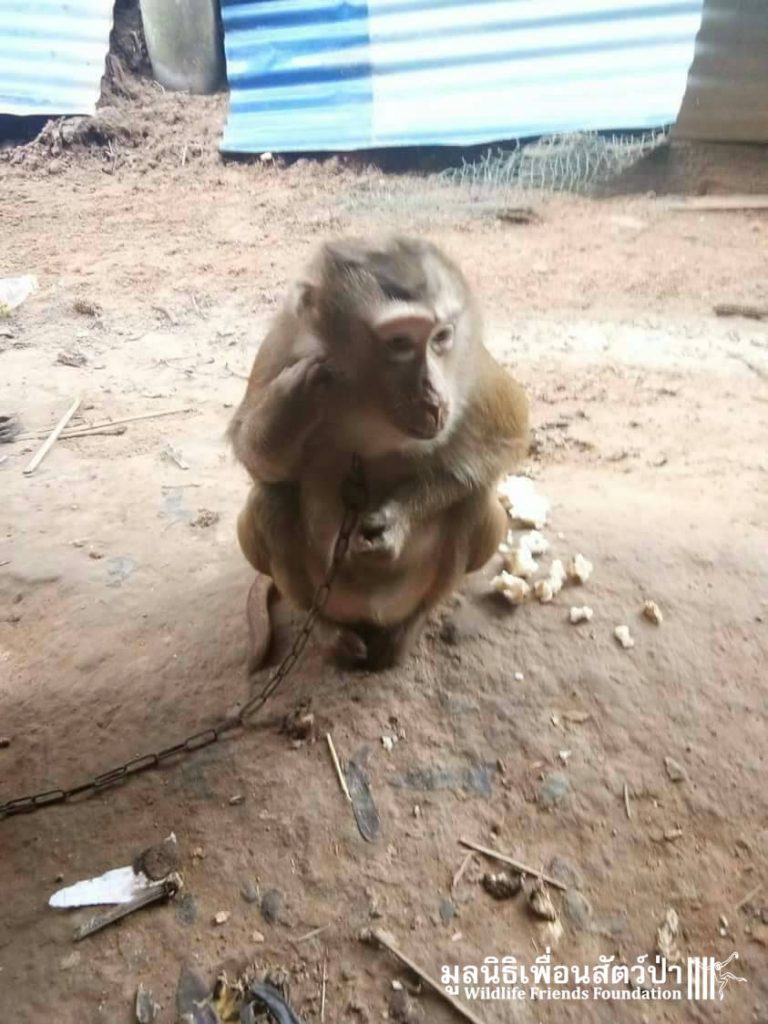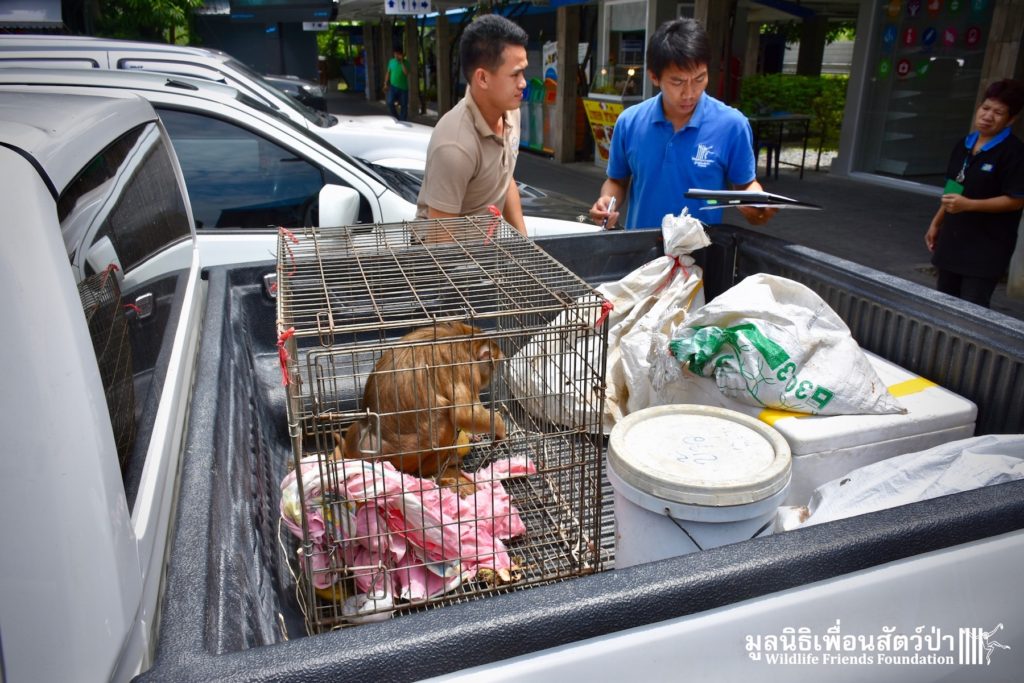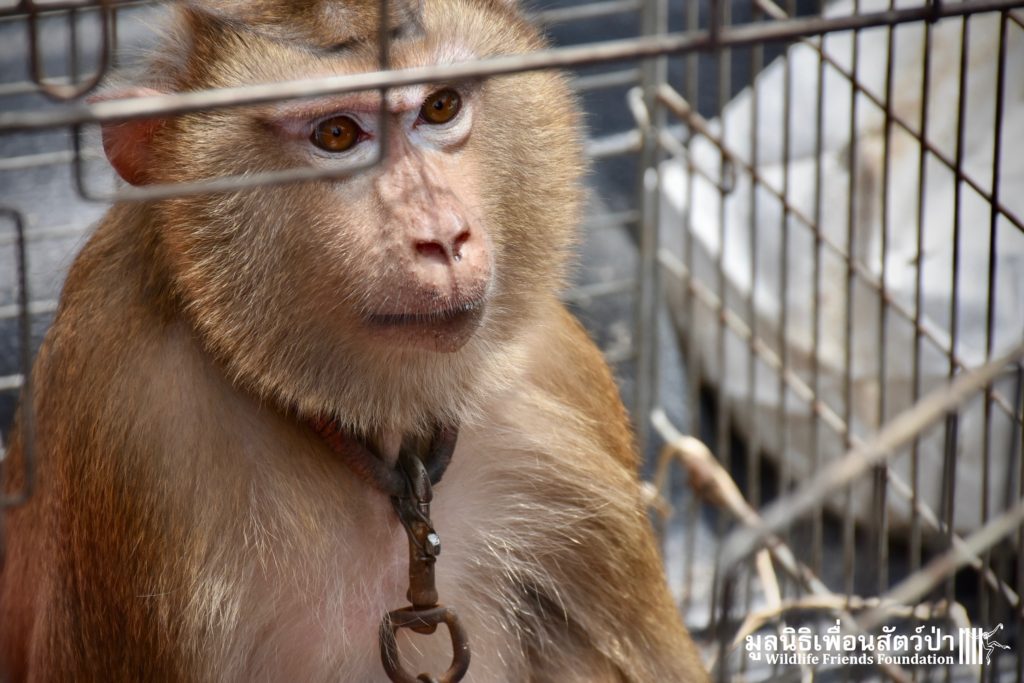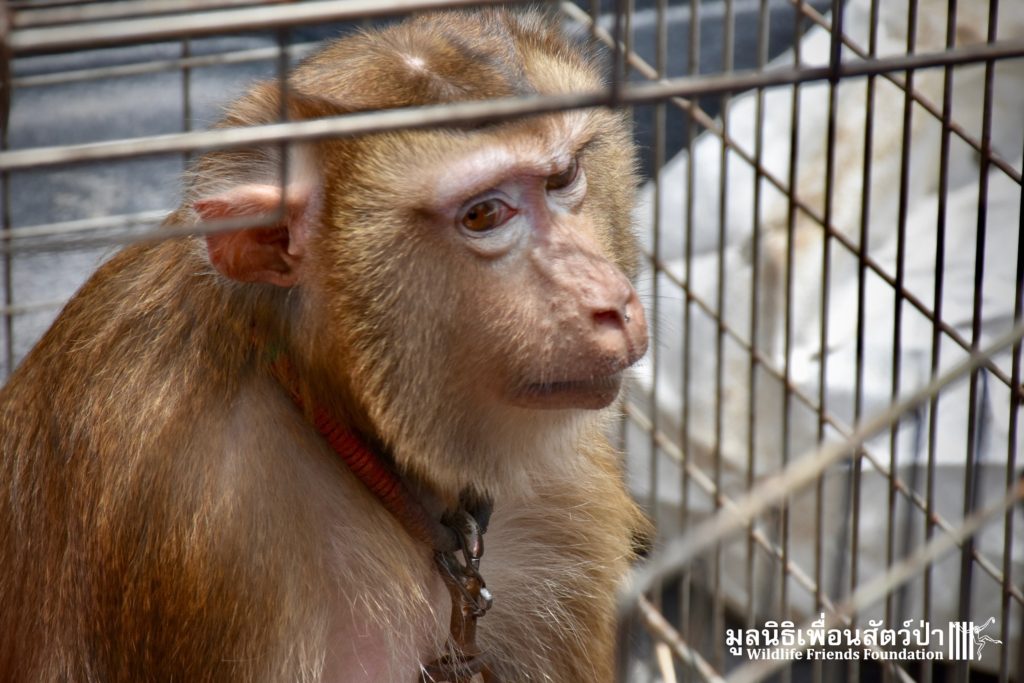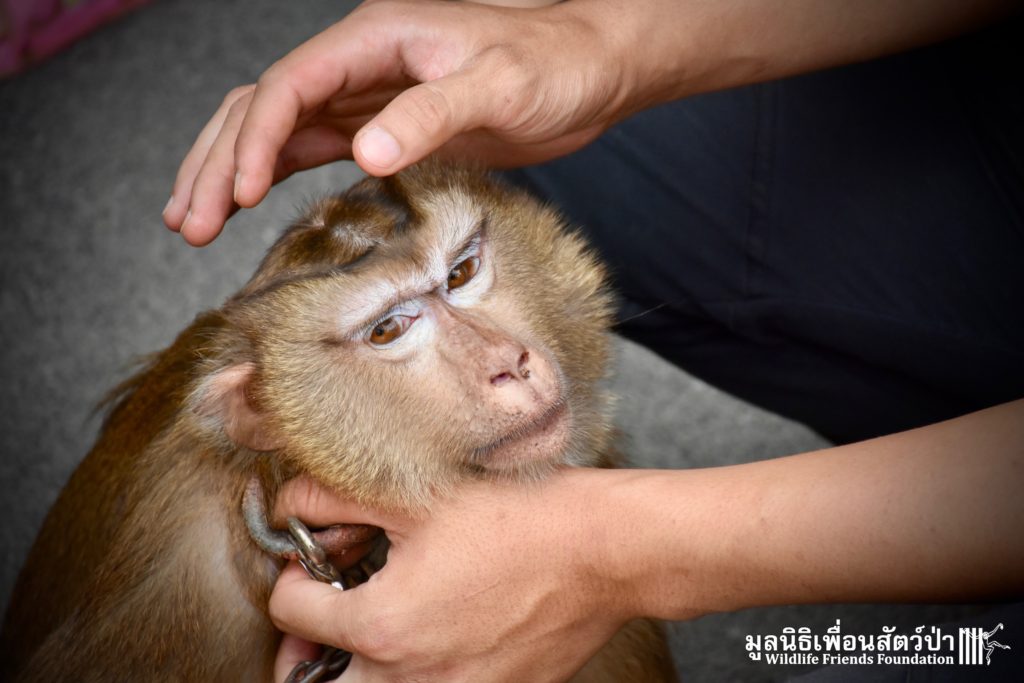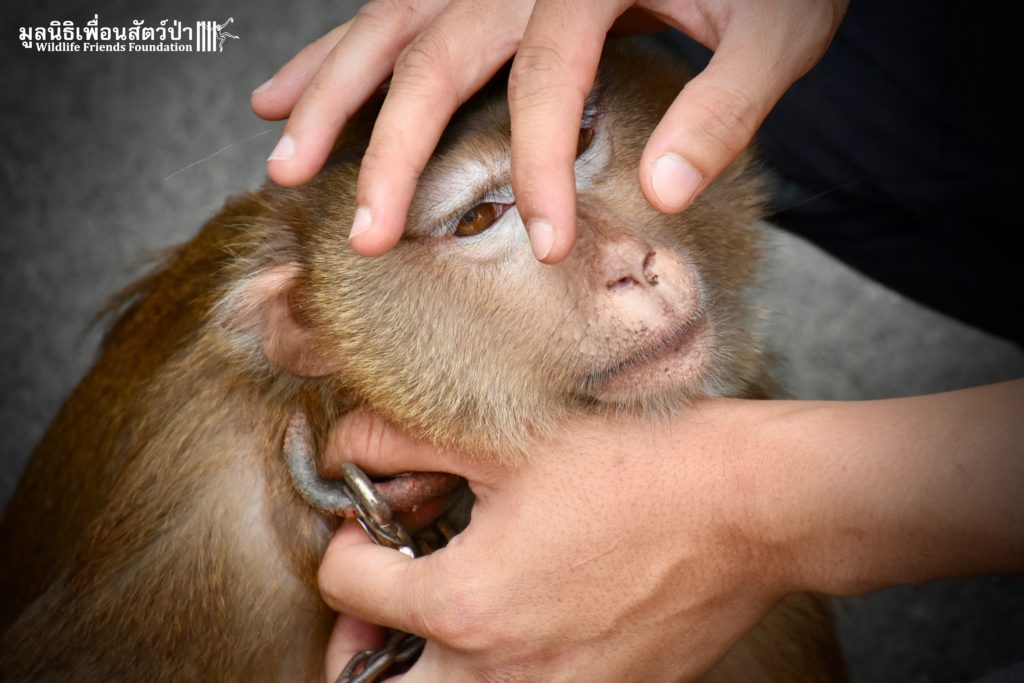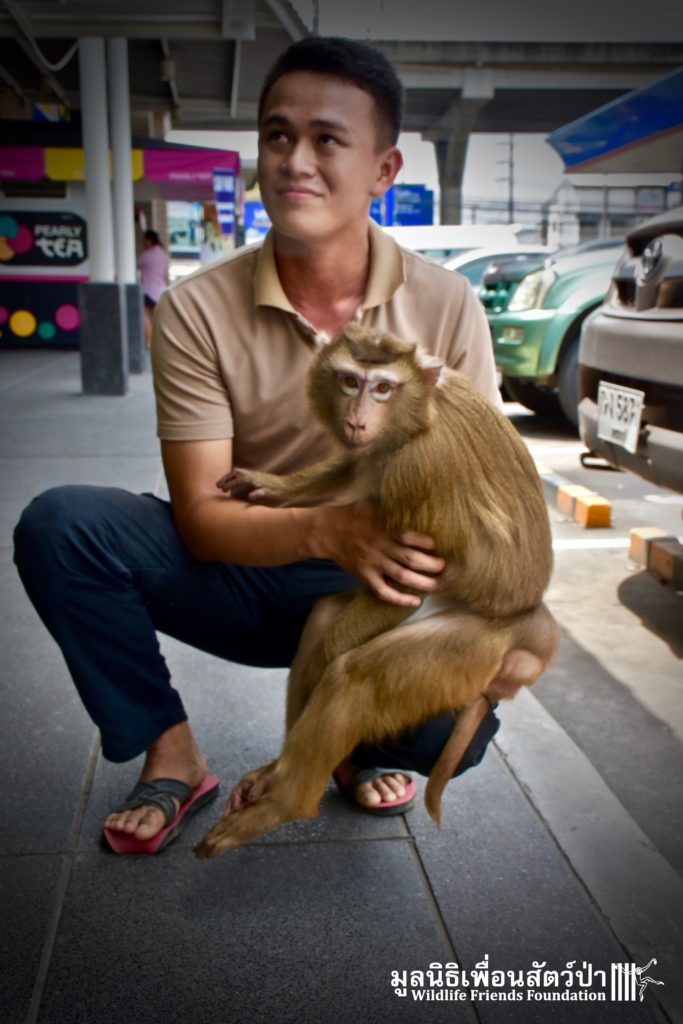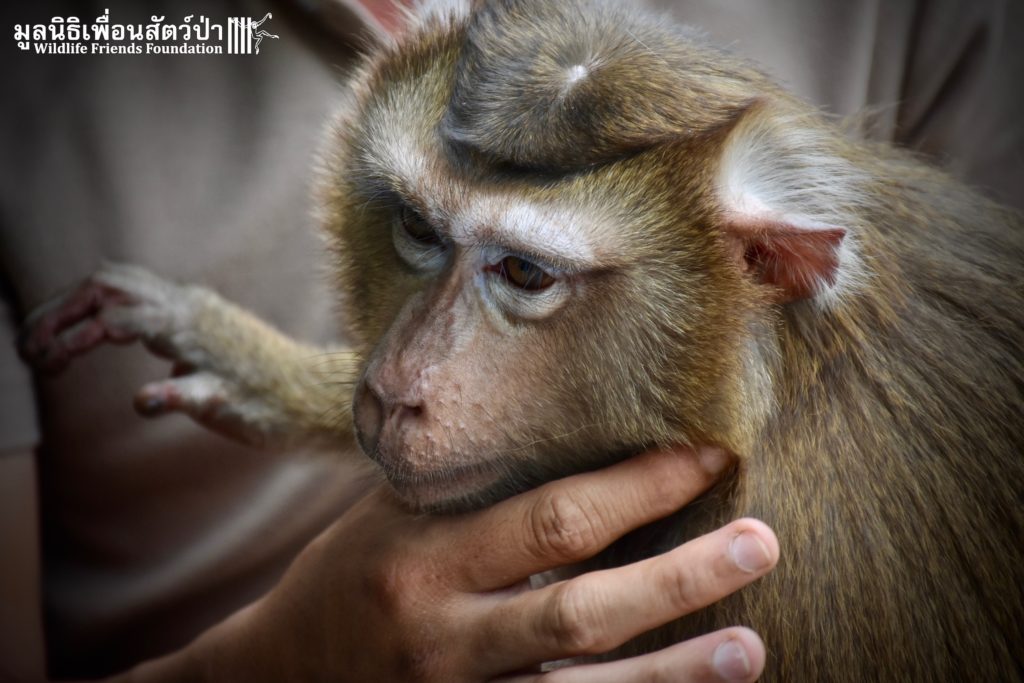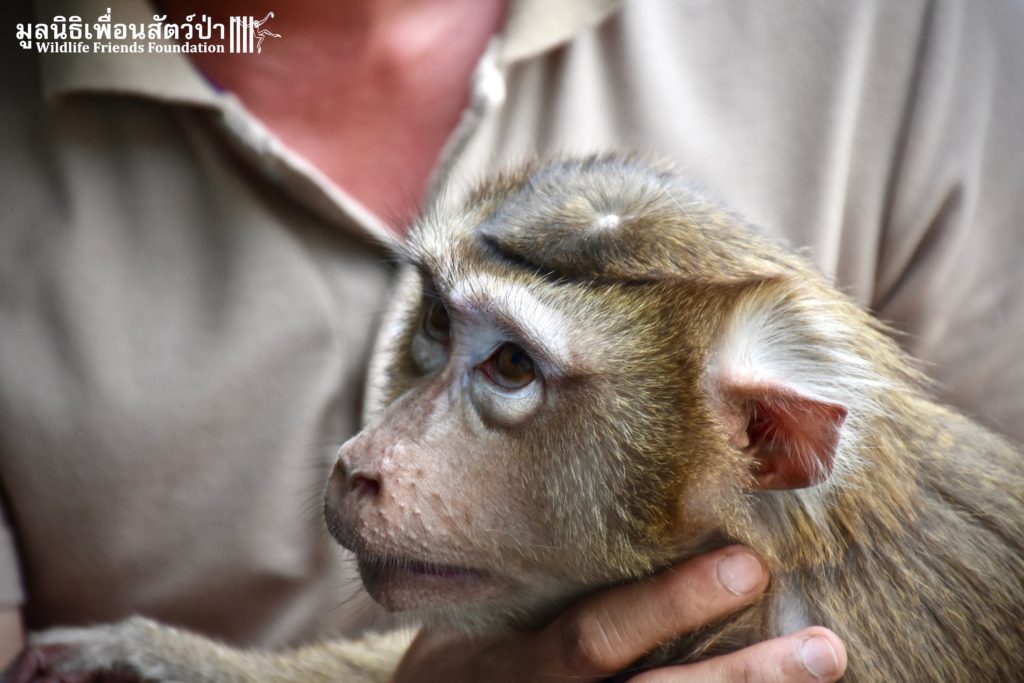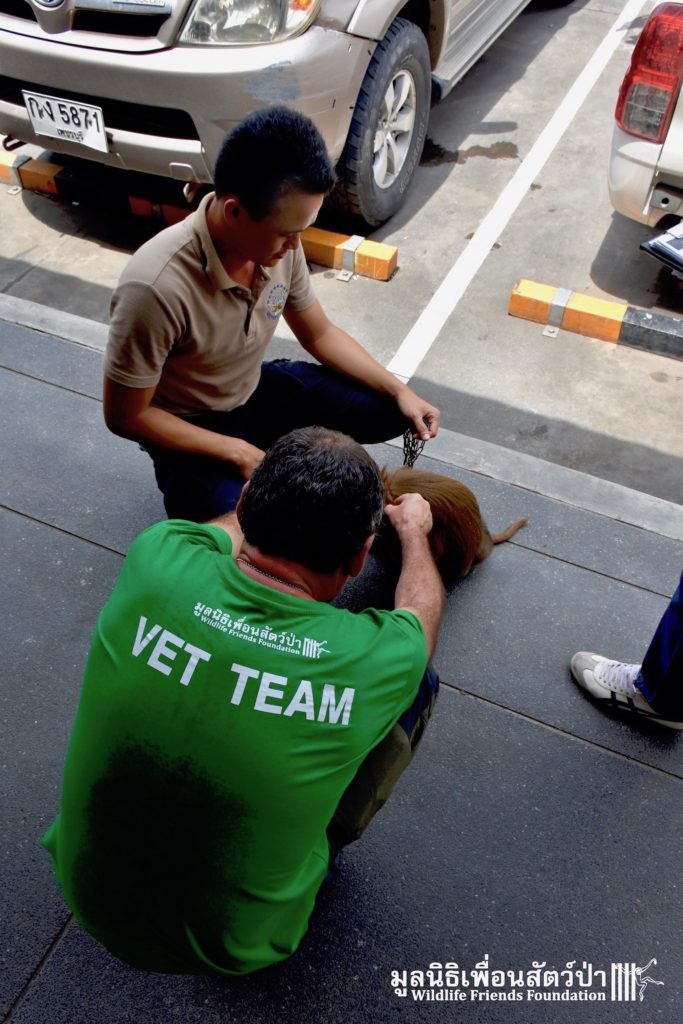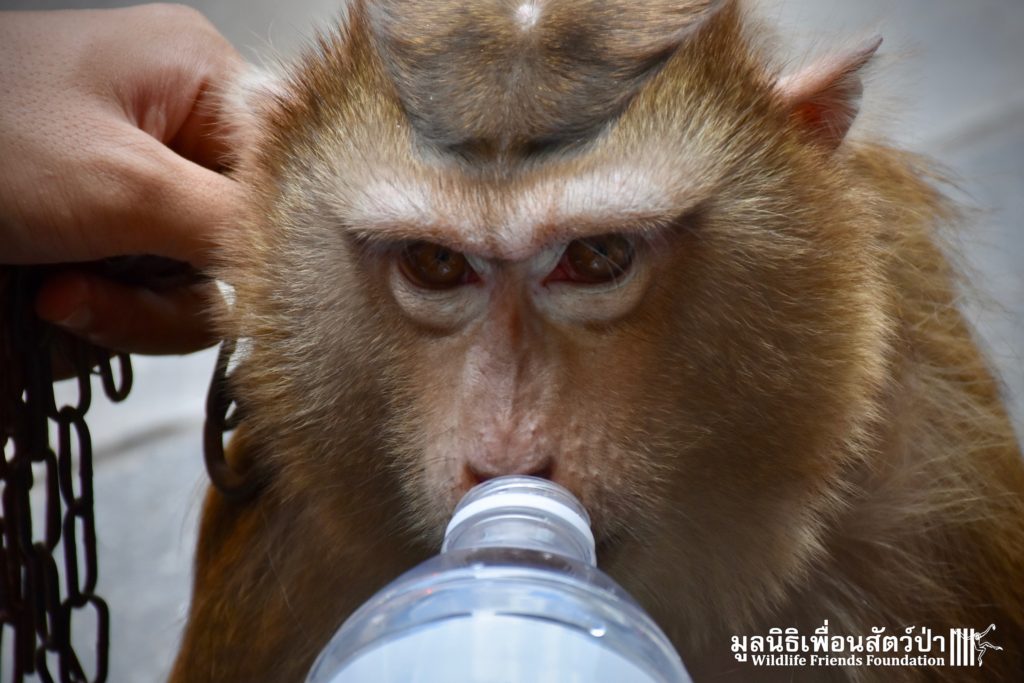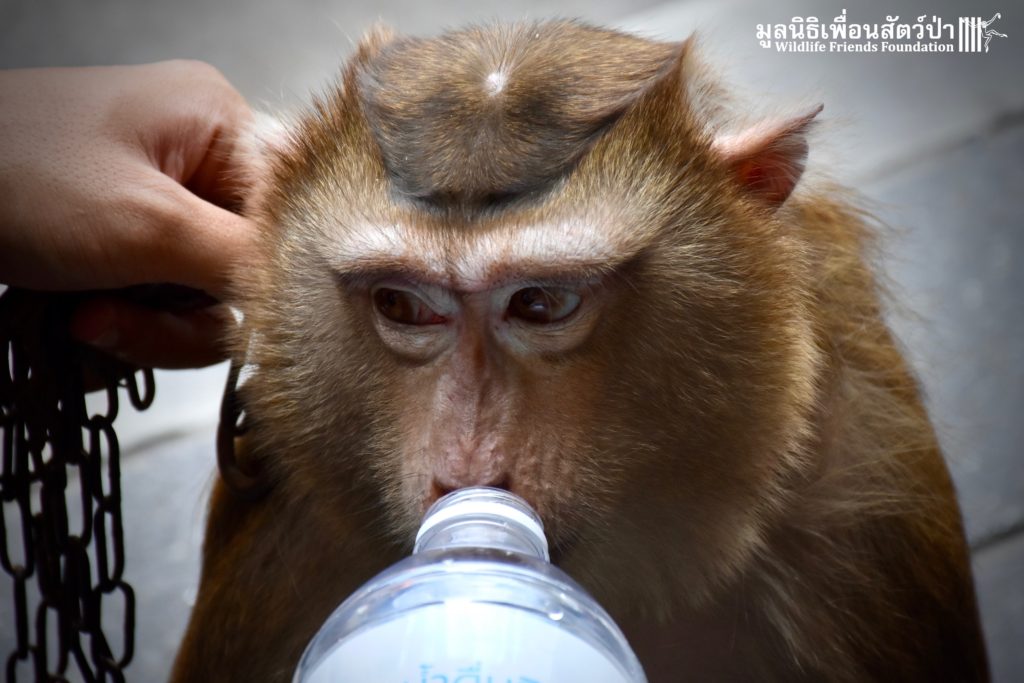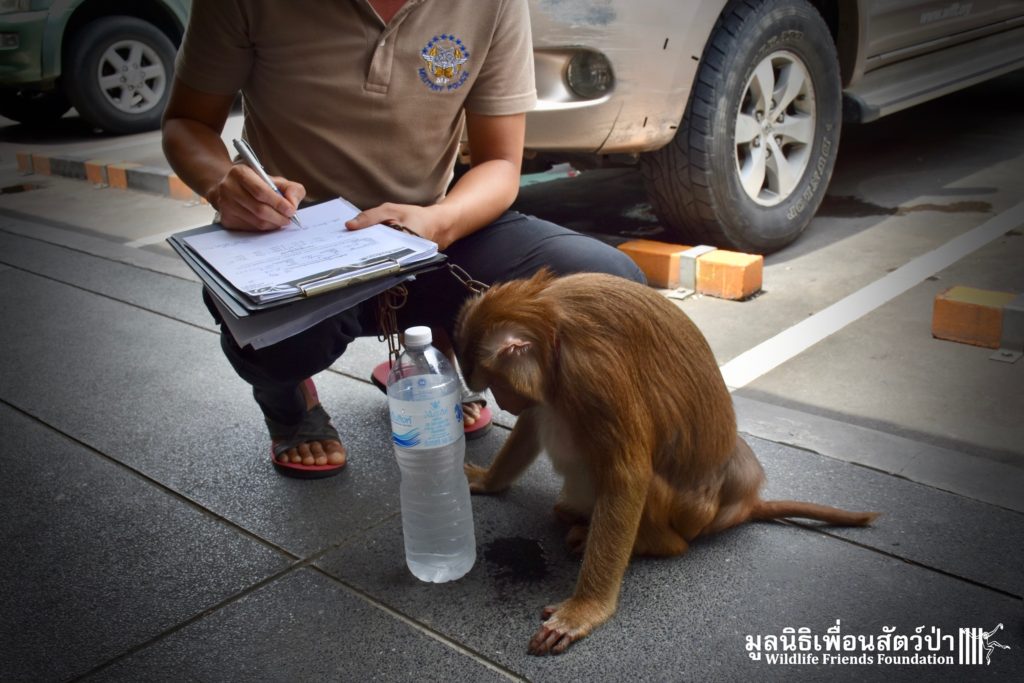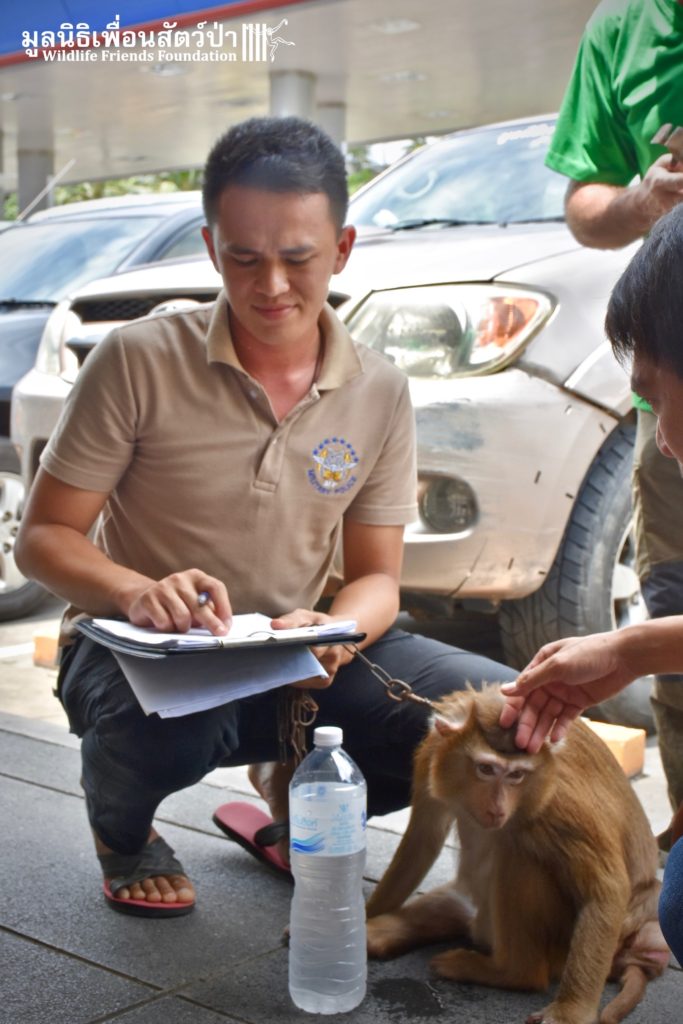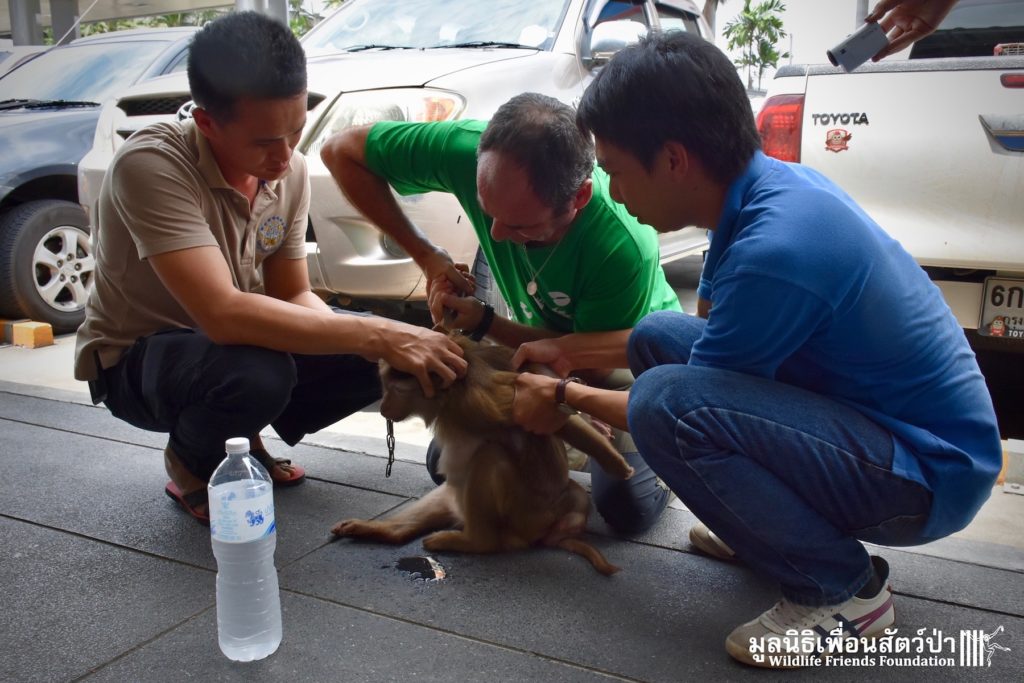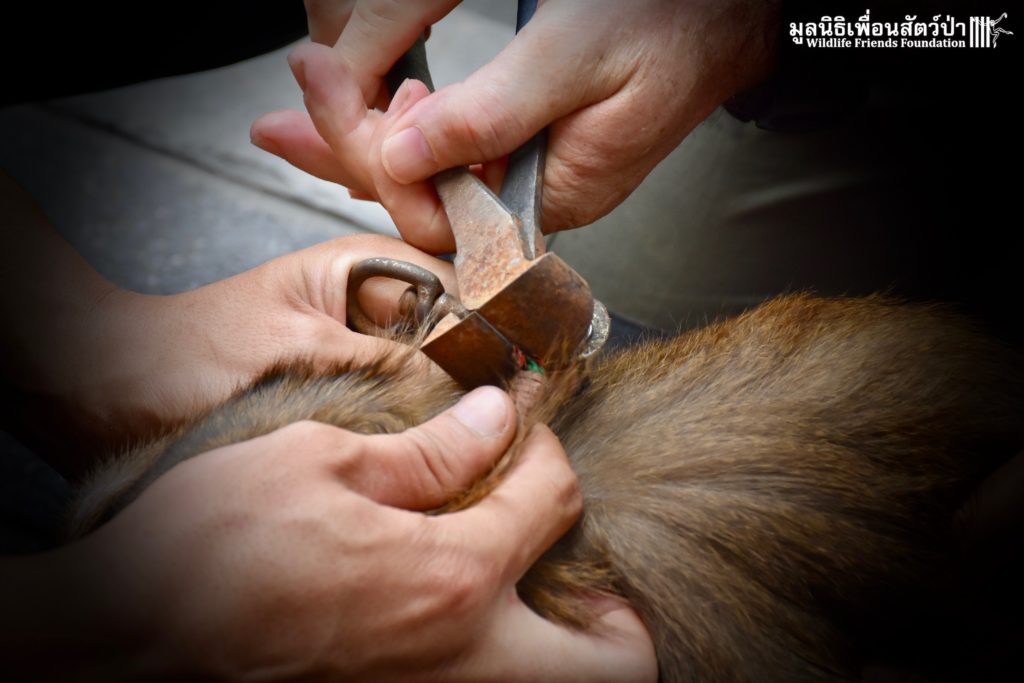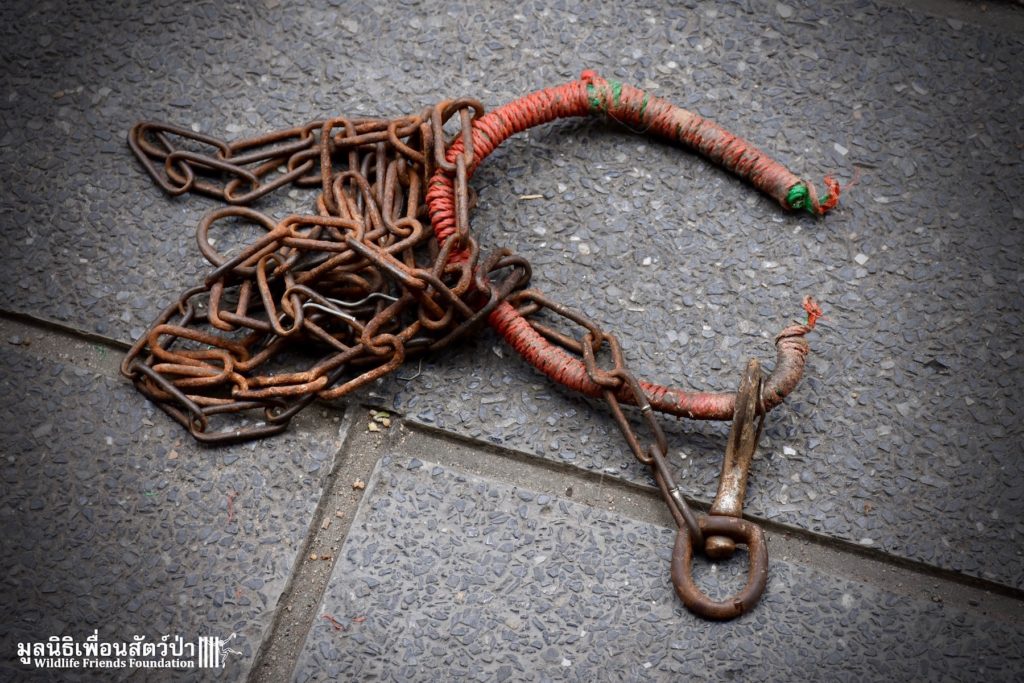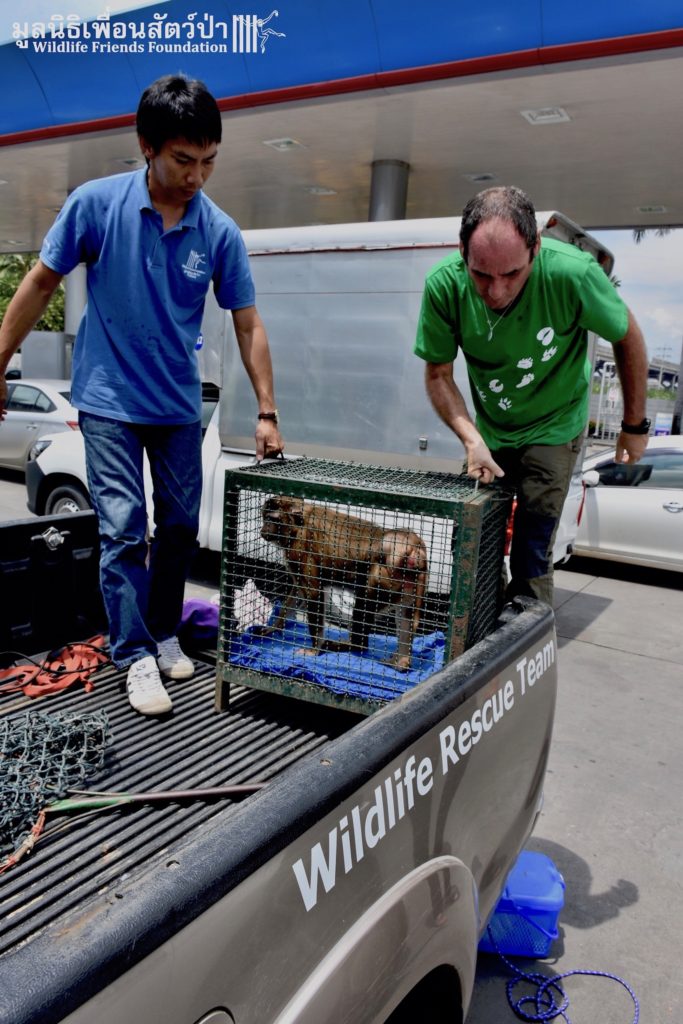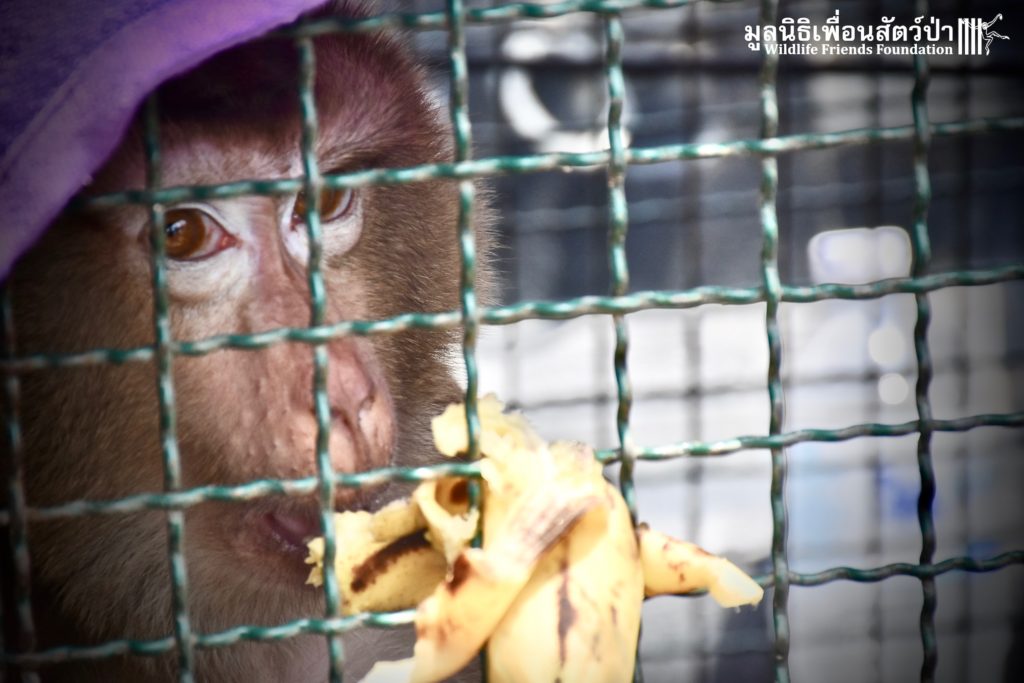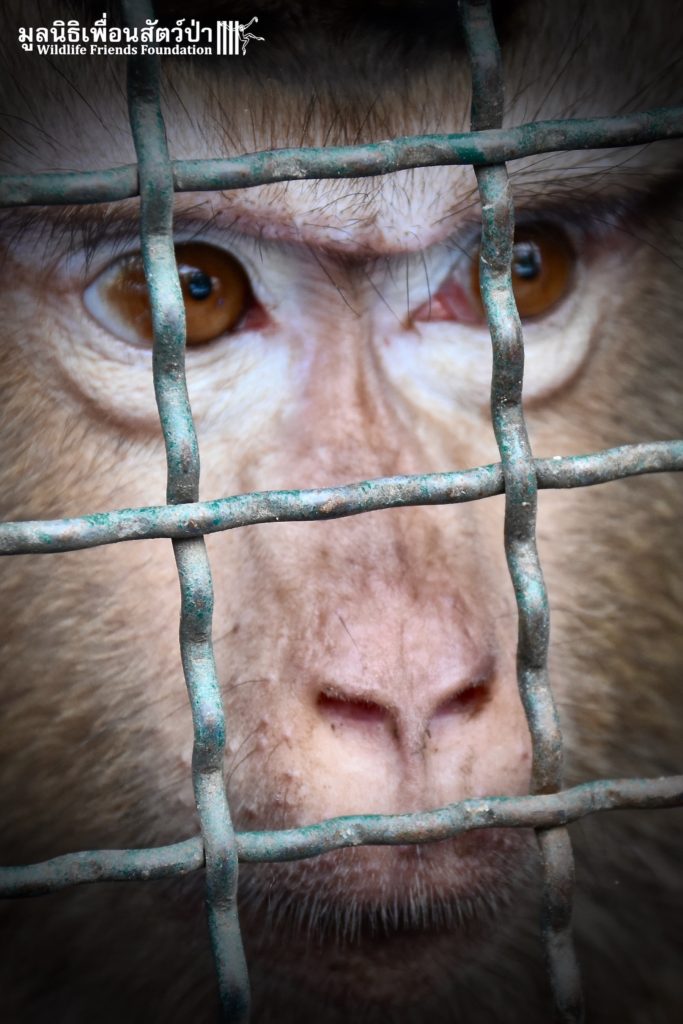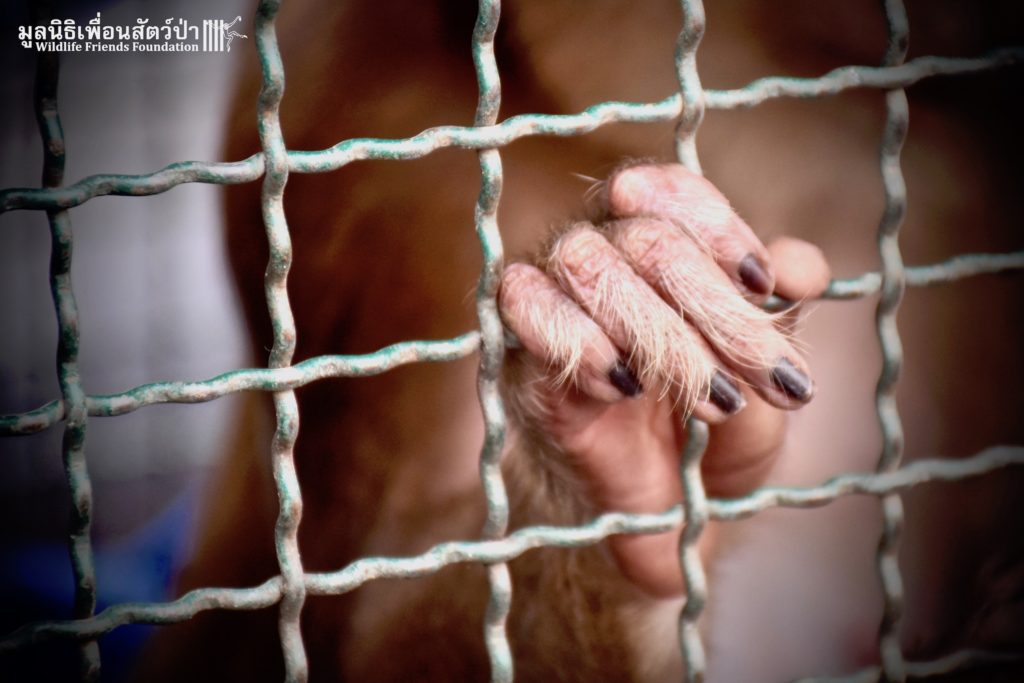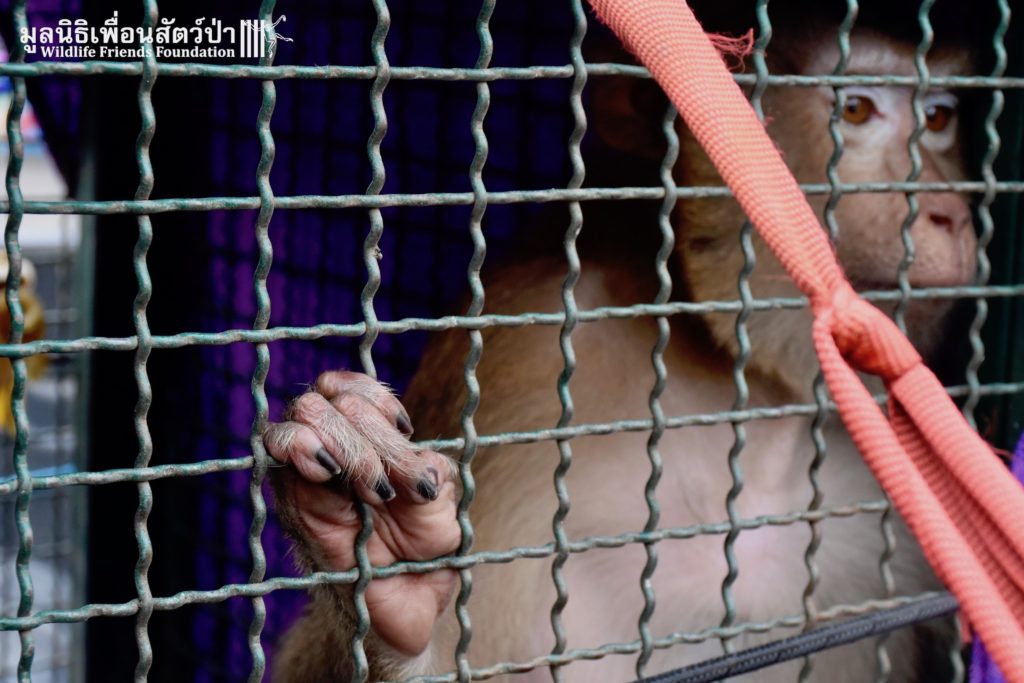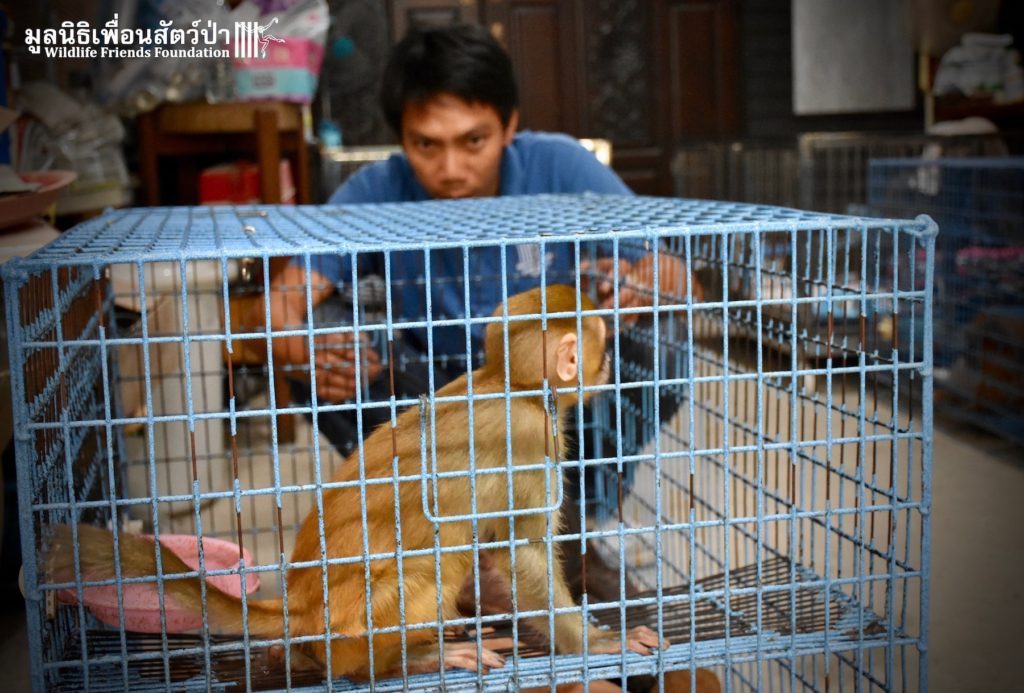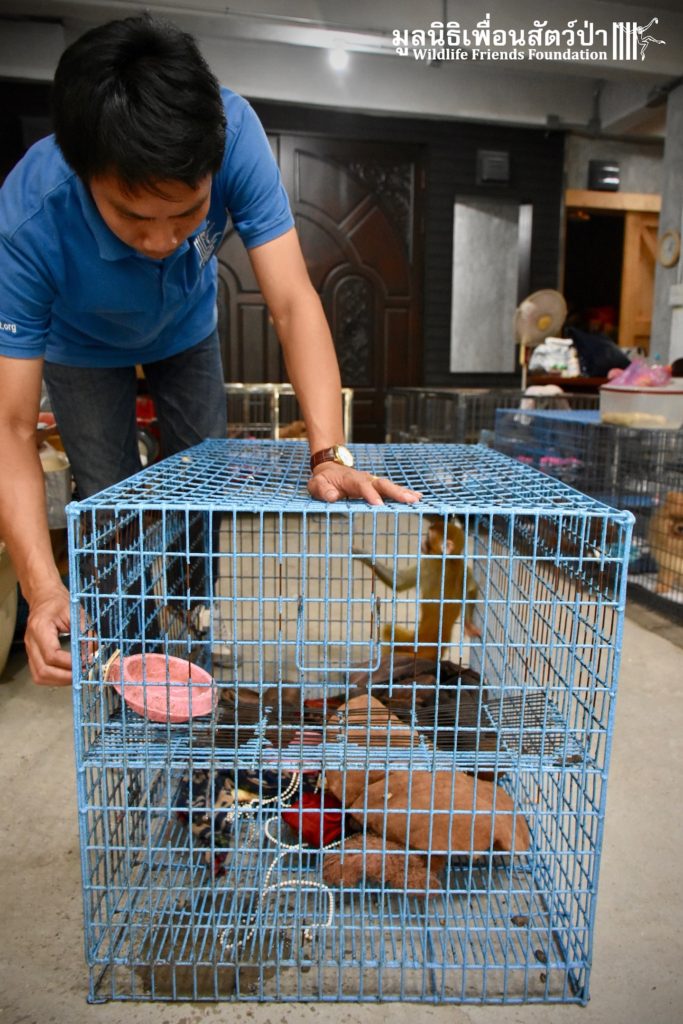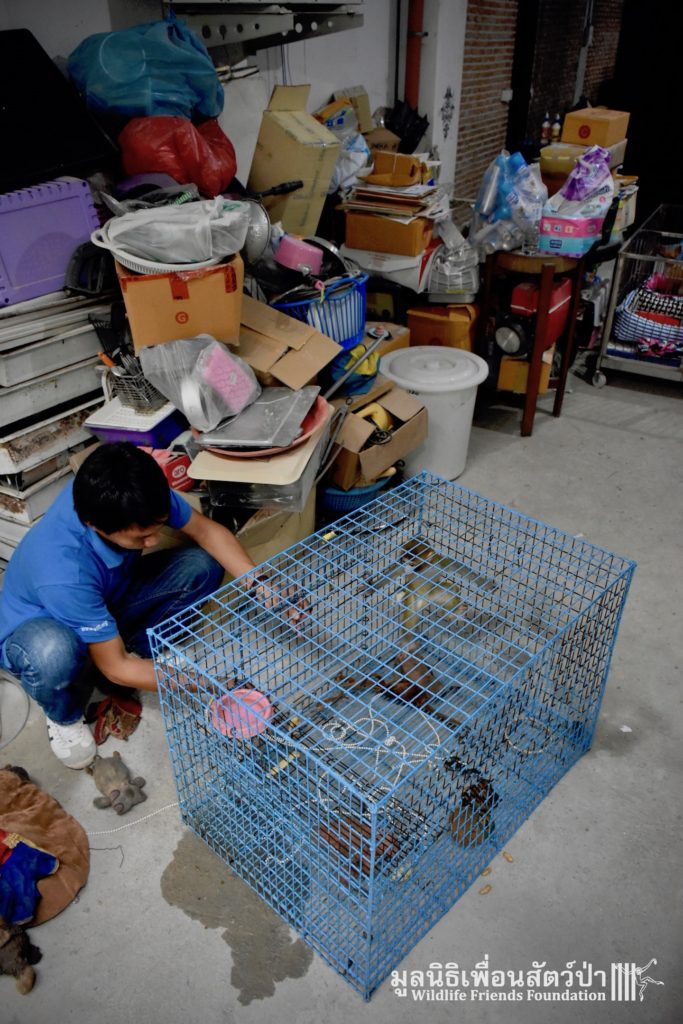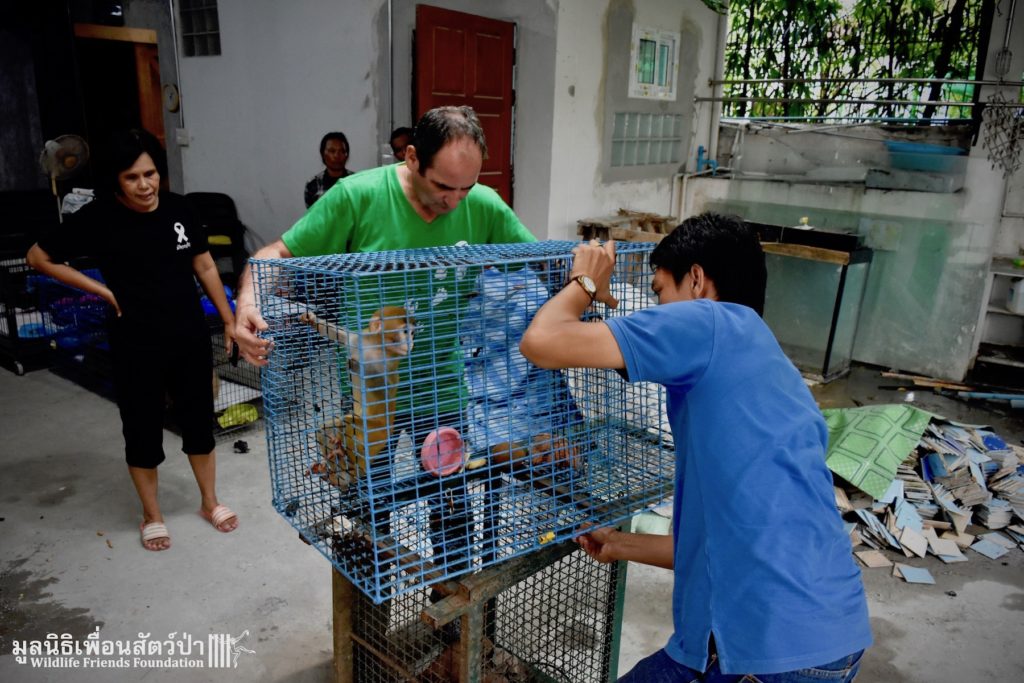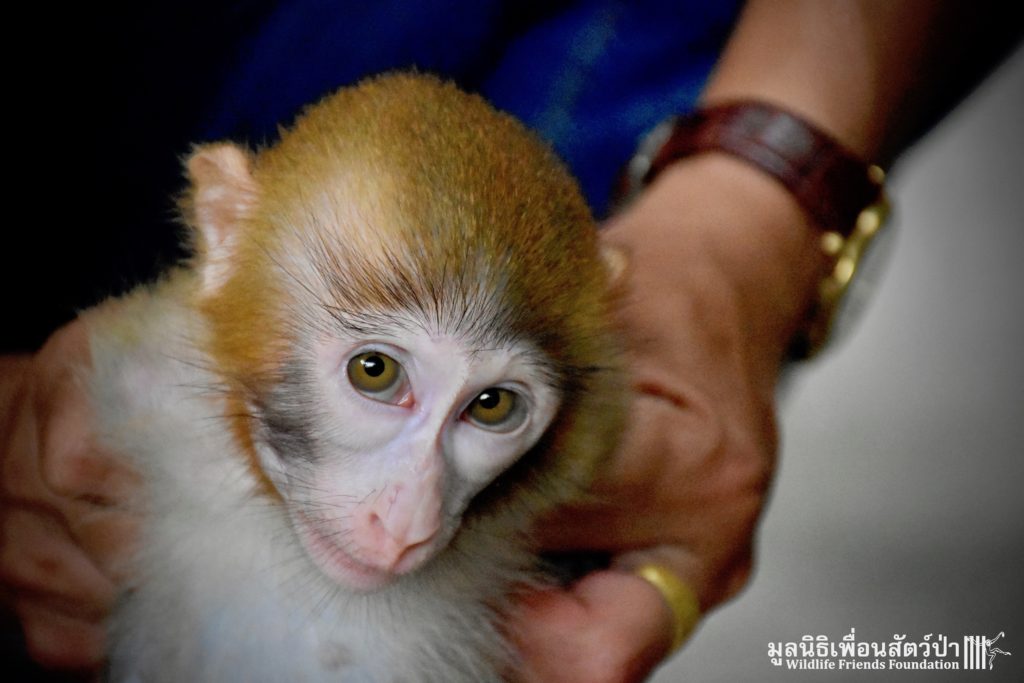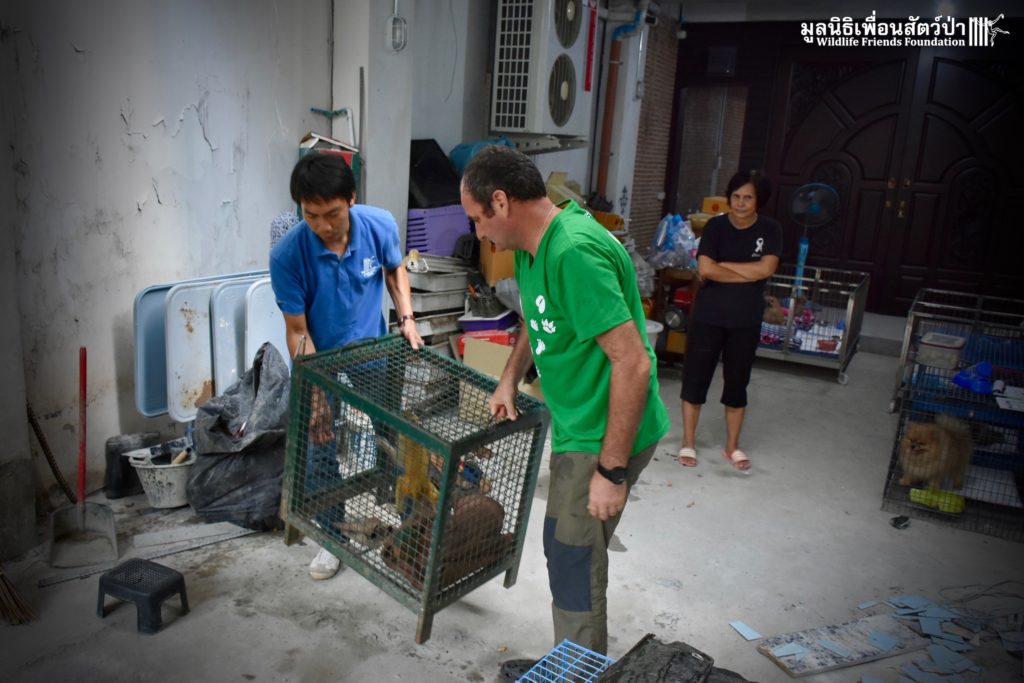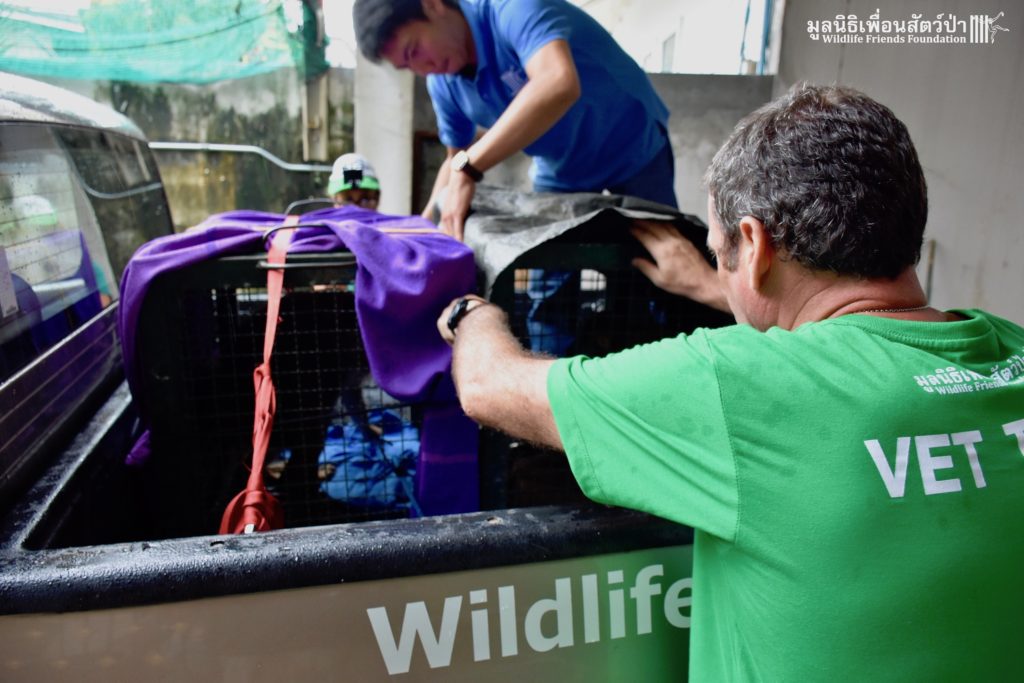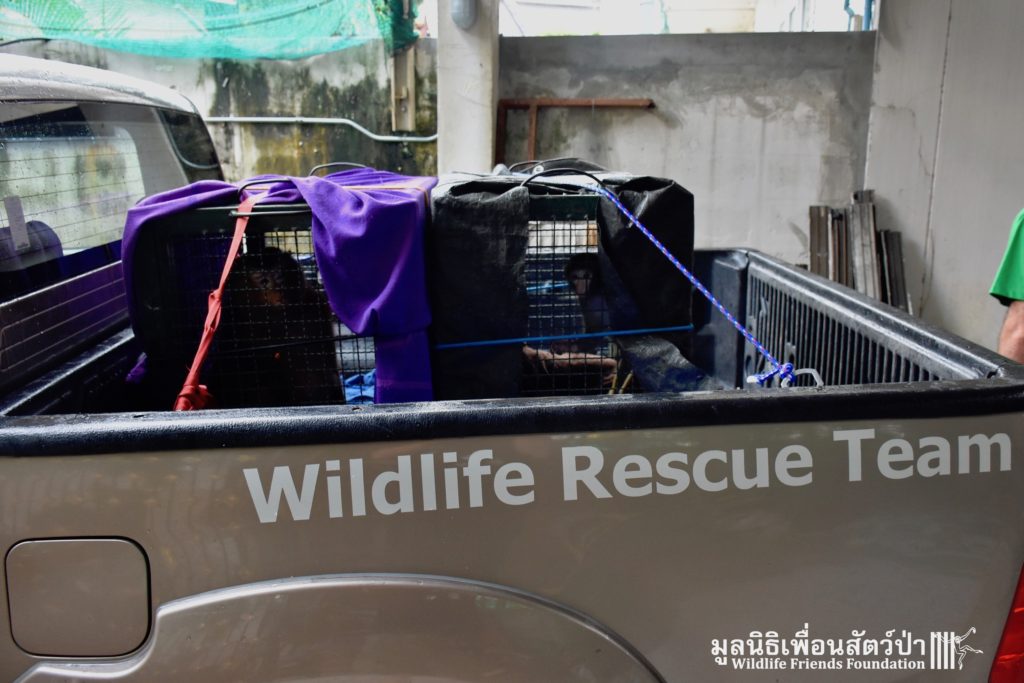After three weeks of dedicated care at the WFFT wildlife hospital, Wang, a wild long-tailed macaque from a local temple, successfully recuperated and was released back to his habitat.
Two Special Souls Saved in One Day
Yesterday two very special female macaques were rescued. Both had been kept as pets at separate locations in the city of Bangkok, their ‘owners’ had decided that they no longer wanted to care for them and had contacted WFFT for help. So yesterday the WFFT Wildlife Rescue Team headed to Bangkok to help these poor animals.
Firstly, we will introduce you to ‘Sam Lee’ (Cotton), she is a 10-year-old Northern pig-tailed macaque (Macaca leonina). Sam Lee has spent the last 10 years with a chain around her neck in the backyard of her owner. She will have been captured from the wild as a young baby, witnessing the murder of her mother before being sold as a pet. The idea of keeping a monkey as a pet seems to appeal to many people, this is when they are young, small and docile enough to handle. A few months down the line they are no longer receptive to human contact, as their wild instincts become more and more evident, they can no longer be handled like babies. This is when the reality of the often long miserable life in captivity starts, they are either locked away in deplorable conditions, thrown back into the wild – without any prior rehabilitation, or chained up and forgotten about. Surprisingly, Sam Lee is quite relaxed and adjusting to her new environment well.
The IUCN Red List of Threatened Species lists the Northern pig-tailed macaque as Vulnerable (VU). Their population has declined by over 30% over the last three generations across its entire range due to several threats, and this decline is predicted to continue at the same rate or higher in the next three generations. These animals are hunted and traded for food, sport and traditional “medicine”, and the live animals as pets. In Thailand, the males of this species are exploited for picking coconuts by the industry. Sometimes, a well-trained macaque is sold for 1,000USD. They are also in demand by resorts and other tourist attractions for inhumane circus style shows.
Secondly, we introduce you to Fa Sai (Clear/Bright Sky), she is a 3-year-old rhesus macaque (Macaca mulatta). Fa Sai has spent the last 3 years being kept in a house in central Bangkok, the last three months of that she was locked into a tiny dog cage in the yard of her ‘owner’ as she had started biting. She was purchased by her owner from a Facebook page illegally selling wildlife a few years ago. She will have been caught from her wild home in Northern Thailand, her mother will have been killed, all so someone could make money from the sale of her. The stress and trauma this little one has faced in her very short life is clearly visible by her extreme stereotypical behavior. These behaOh viours are often seen in captive animals that have been systematically abused, socially deprived and kept in harsh conditions. We expect little Fa Sai’s rehabilitation will take longer than Sam Lee’s, but she has age on her side, we have some rhesus macaques of similar age and size at the WFFT Wildlife Rescue Centre, so we are hopeful with time she will be able to once again believe she is a monkey, and have some form of real existence.
The IUCN Red List of Threatened Species lists the rhesus macaque as Least Concern (LC). The rhesus macaque is increasingly threatened in the wild, its original habitat is increasingly being lost to development. Capture for laboratory testing is a mostly localized threat, but it is considerable in certain areas. Capture and release of laboratory and “problem monkeys” from rural and urban areas into natural forests is a major threat to wild macaques. A large captive population is maintained around the world for use in biological, psychological and medicinal research, especially for studies into perception, learning and behaviour. They are the most studied nonhuman primate, both in the field and in laboratory settings. In the wild they are remarkably adapted to coexisting with humans and thrive near human settlement, in both urban and agricultural areas. The increasing level of cohabitation has been associated with waning levels of human tolerance for the animals resulting in human-wildlife conflicts. They are only primate with a broader geographic distribution than humans.
Both Sam Lee and Fa Sai will go through a quarantine period prior to being introduced to their own species again for the first time in years. They will once be able to act like monkeys, socialize with their own species and have some form of freedom after years in deplorable conditions. We provide our macaques with large open fields, with pools to swim in, places to climb and hide, most importantly they are now free from human harm. We will keep you posted on their progress.
Note: We have on many occasions contacted Facebook about pages that openly sell wildlife illegally, condone and in some instances publish blatant animal cruelty. The illegal wildlife trade is the fourth most profitable transnational crime in the world after narcotics, weapons and human trafficking, and is worth an estimated 20 billion US dollars a year. Why is #Facebook not acting…? Why will #Facebook not help us help the the wildlife of the world…?

